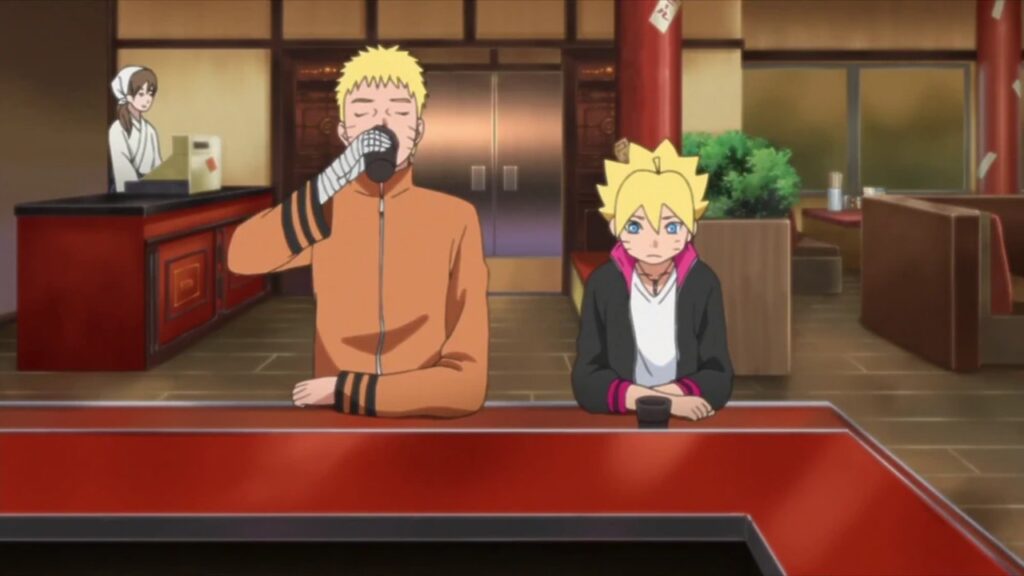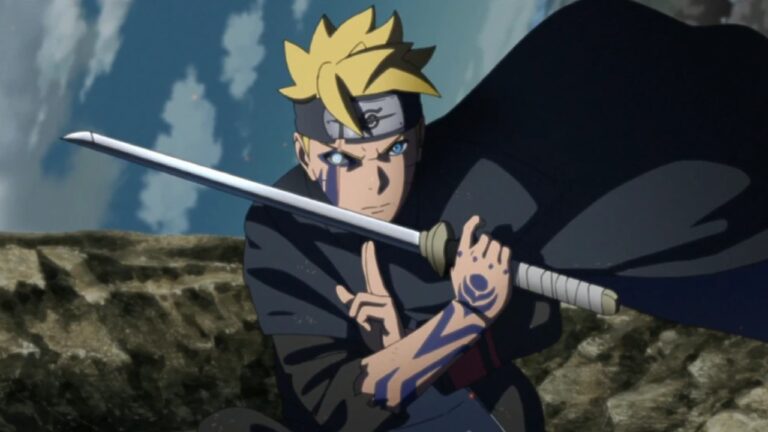Right from the start, ‘Boruto: Naruto Next Generations,’ produced by Masashi Kishimoto and Studio Pierrot, brings before us a world that is so different from the one in the original ‘Naruto’ series. Whereas Naruto had to fight against loneliness, rejection, and struggle, Uzumaki Boruto is raised in an environment that is replete with love, friendship, and recognition. His battles are not to find his place in the village but to establish his own identity in the presence of his father, who is the Seventh Hokage of the Konoha Village.
Such a marked difference between the two generations sets up Boruto’s coming-of-age journey as a distinctly different exploration of legacy, expectations, and responsibility, and is also the reason why some fans love the story while others are critical.
Boruto’s Growth in a World Shaped by Naruto’s Legacy

One of the most apparent ways in which they differ is in their origin stories. Naruto began with nothing. He is an orphan who is ostracized by the village because the Nine-Tails Fox is imprisoned in him. He has no friends, no family, and no status. Every success that he achieved is a product of his own willpower and his desire to prove himself. Boruto, on the other hand, begins life with almost every possible advantage. He is the son of the Hokage, has friends, and is brought up in a loving family environment. As a result, his conflicts are also different. Rather than facing rejection, he faces the challenges of living with the shadow of his father and dealing with the pressures of his father’s accomplishments, particularly those of Naruto. For some of us, the change may be the more contemporary commentary on legacy and responsibility, but for others, it may be the scenario of the spoiled brat instead of the hero.
Expectations, Power, and the Cost of Inherited Glory

Boruto is also shown to be a natural prodigy. He learns things rapidly and has the use of a mysterious and powerful eye known as Jogan. Compared to Naruto, he had to learn every skill by hard work, cleverness, and leveraging the strength of the Nine-Tails. Boruto’s character development focuses on the experience of a person who is born with talents in a world that is at peace. He symbolizes the struggle of a person who does not have to fight for their life but still has to carve out his own identity in a world that finds success easily. This lack of struggle is what might make some people feel disconnected from Boruto. We understand the similarities between Boruto and other powerful individuals of Naruto’s generation, but without the struggle that defined Naruto, Boruto’s triumphs are different, and perhaps less significant. The world they live in also exemplifies these differences. Naruto’s world was a world of war, of danger, and of high-risk missions. Every battle counted because life depended on skill and tactics. Boruto’s world is a world of peace, of progress, and of technological advancement. The discovery of the Scientific Ninja Tools means that one can accomplish a technique without training or chakra, an entirely different approach to combat. In the early parts of Boruto’s narrative, his use of the tools and his privileged upbringing underscore his ungratefulness for the old ways, but later on, we see Boruto develop and understand that even in a world where the challenges may not be as threatening, hard work and talent still count. Fans believe that Boruto sometimes comes across as an ungrateful character, particularly in the earlier stages. His anger towards Naruto sometimes seems childish when he is upset about having a father who is busy but loving. Some fans also feel that the story undermines Naruto’s heritage as the struggles of Boruto look trivial compared to what his father has gone through. The emphasis on having powerful enemies like the Otsutsuki family changes the dynamics of threats from local to global or even cosmic levels.




